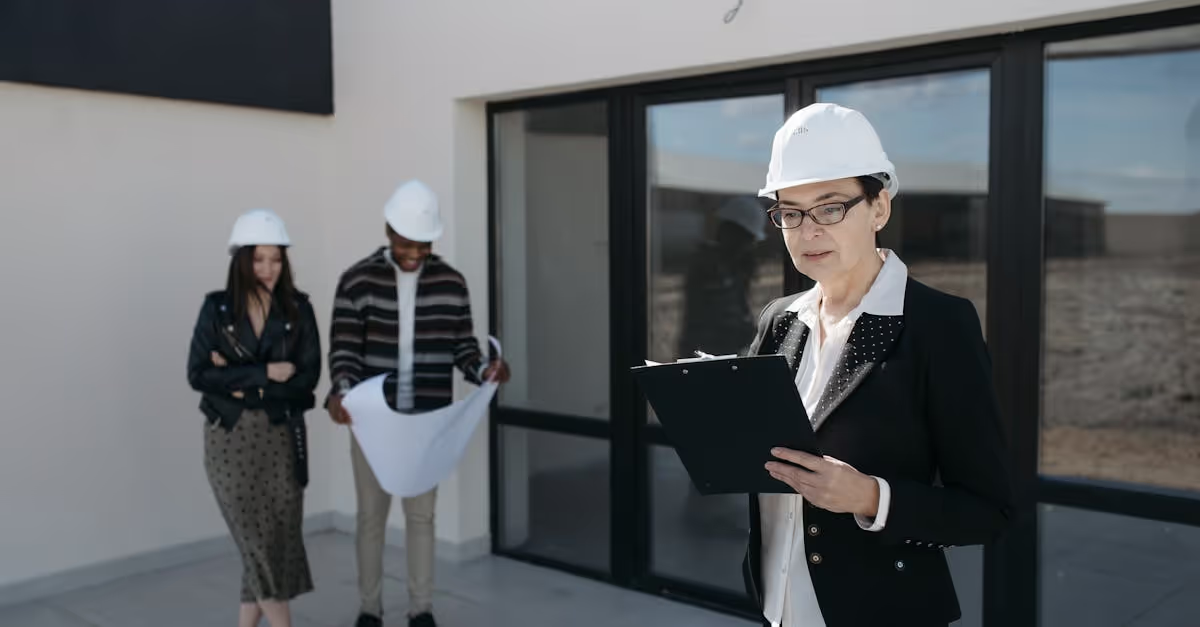Key Takeaways
- Safety and Compliance: Regular maintenance is critical for ensuring the safety and cleanliness of commercial pools, significantly reducing the risk of accidents related to poor upkeep.
- Tailored Maintenance Plans: Customized maintenance strategies improve resource allocation, efficiency, and customer satisfaction by addressing the unique needs of each facility.
- Water Quality Management: Consistent water testing and chemical balancing are essential for maintaining clean and safe swimming conditions, particularly in high-traffic pools.
- Routine Equipment Inspections: Regular checks and proactive repairs of filtration systems, pumps, and heaters enhance performance and prevent costly breakdowns.
- Effective Scheduling: Implementing service dispatch and route management software streamlines maintenance tasks, ensuring timely and efficient service delivery.
- Staff Training: Regular training on maintenance protocols is vital for team preparedness, enabling swift identification and resolution of potential issues.
Managing a commercial pool facility isn’t just about providing a place for leisure; it’s about ensuring safety and cleanliness for everyone who uses it. Did you know that nearly 60% of pool-related accidents stem from poor maintenance? That’s a staggering statistic that highlights the importance of having a solid maintenance plan in place.
We understand that each facility is unique, and a one-size-fits-all approach simply won’t cut it. Tailored maintenance plans can help keep your pool in pristine condition while also adhering to health regulations. In this article, we’ll explore the key components of effective maintenance strategies designed specifically for commercial pools, ensuring a safe and enjoyable environment for your patrons.
Overview of Commercial Pool Maintenance
Maintaining commercial pool facilities involves consistent attention to detail. Regular maintenance fosters safety, cleanliness, and compliance with health regulations.
Importance of Regular Maintenance
Regular maintenance keeps pools safe for guests. With nearly 60% of pool-related accidents tied to poor upkeep, it’s crucial to prioritize inspections and cleaning. We focus on monitoring water quality, checking chemical levels, and addressing mechanical issues promptly. Ensuring the pool’s surface is free from debris and the surrounding area remains clean also plays a vital role in overall safety. Routine maintenance schedules can help standardized processes, making it easier for facilities to comply with local health codes.
Benefits of Tailored Maintenance Plans
Tailored maintenance plans offer numerous advantages for pool operators. These plans allow us to customize service schedules based on specific needs, optimizing resources and time. For example, using technician scheduling tools can improve appointment management and reduce service delays. These plans also promote cost efficiency by preventing costly repairs through regular upkeep. We gain better customer engagement through clear communication, enhancing satisfaction. Moreover, automated field service solutions streamline scheduling and dispatch, allowing our team to focus on keeping the pool sparkling clean. With the right maintenance strategy, pools not only provide a safe environment but create inviting spaces for enjoyment and relaxation.
Key Components of Maintenance Plans
Maintenance plans for commercial pool facilities feature several essential components. We focus on water quality management and routine equipment inspection to keep pools safe and inviting.
Water Quality Management
Water quality management is vital for keeping pools clean and safe. Daily testing of water chemistry is a must. We check parameters like pH, which should range from 7.2 to 7.8. Chlorine levels need to stay between 1-3 ppm, while alkalinity should fall between 80-120 ppm. Regular chemical balancing prevents scale buildup and maintains stability, with calcium hardness levels ideally set at 200-400 ppm. Proper circulation plays a critical role in distributing chemicals evenly. We constantly monitor circulation to enhance water clarity. Periodically, we apply shock treatments to oxidize contaminants. This proactive measure maintains clarity and clarity within the pool.
Equipment Inspection and Repair
Routine inspections form the backbone of equipment care. We start by inspecting the filtration system; clean, efficient filters are key for proper operation. If filters are dirty or worn out, we clean or replace them immediately to prevent water quality issues. Additionally, we assess pumps and heaters to ensure optimal performance. Regular maintenance prevents costly breakdowns and enhances user experience. Implementing technician management software aids in scheduling inspections effectively, making it simpler to keep track of maintenance tasks. By using tools designed for mobile workforce management, we streamline our operations and make every inspection count, ultimately benefiting our patrons.
Incorporating these components in our maintenance plan ensures a safe and enjoyable experience for everyone.
Developing a Customized Maintenance Plan
Creating a customized maintenance plan involves understanding our facility’s specific needs. We can develop plans that maintain safety, cleanliness, and compliance effectively.
Assessing Facility Needs
Assessing our facility needs involves examining pool structure, usage frequency, and unique challenges. We can start by evaluating current equipment and systems. High-traffic pools require different upkeep than those with lighter use.
Key considerations include water quality demands, mechanical systems status, and user engagement. Regular inspections help us identify potential issues before they escalate. Using technician management software, we can track these assessments efficiently. The insight from this software can guide resource allocation and maintenance scheduling.
Setting Maintenance Goals
Setting maintenance goals aligns our plan with operational standards and community expectations. We should aim for clear targets, such as reducing chemical imbalance incidents by 20% in six months.
Goals can include increasing service efficiency through mobile workforce management tools. Automating routine tasks allows our maintenance team to focus on critical issues. Employing route management software can also optimize technicians' time, cutting down response times significantly.
Regular communication with users fosters a community feel and encourages their input on pool conditions. Incorporating their feedback into our maintenance strategy can further enhance our goal setting, making everyone feel invested in the facility's success.
Implementing the Maintenance Plan
We focus on effective strategies for maintaining commercial pool facilities. A solid maintenance plan keeps pools safe, clean, and compliant with health regulations.
Scheduling Regular Services
Scheduling regular services is critical for pool upkeep. We recommend scheduling weekly and monthly maintenance checks. Weekly tasks include skimming the surface, vacuuming the floor, and checking chemical levels. Monthly services involve deep cleaning and inspecting hard-to-reach areas. Keeping a routine prevents problems from sprouting up, just like watering a garden. If we forget, things can get messy quickly.
Using Service Dispatch Software can streamline scheduling. This software allows us to manage technician assignments efficiently, ensuring timely service delivery. We can optimize routes with Route Management Software, reducing downtime and enhancing our team's productivity. What scheduling solutions have you found helpful in your business?
Training Staff on Maintenance Protocols
Training our staff on maintenance protocols is essential. A well-trained team can detect issues before they escalate. We should focus on hands-on training sessions about chemical handling, equipment operation, and safety procedures.
Regular training refreshes our team's skills and keeps everyone in the know. Consider incorporating Mobile Workforce Management tools. These tools ensure our teams have access to protocols and updates on-the-go, increasing responsiveness. It's like having a personal assistant who never lets us forget anything! How often do you conduct training sessions for your staff?
Conclusion
Tailored maintenance plans are essential for the safety and enjoyment of commercial pool facilities. By focusing on regular inspections and effective water quality management, we can ensure a clean and inviting environment for all users. Utilizing technician management software and mobile workforce tools allows us to streamline our processes and respond quickly to any issues that arise.
Investing in staff training further enhances our ability to maintain high standards and comply with health regulations. As we prioritize communication with our patrons, we foster a community that values safety and satisfaction. With a proactive approach to maintenance, we not only protect our guests but also promote the longevity and efficiency of our facilities.
Frequently Asked Questions
Why is maintenance important for commercial pools?
Maintaining commercial pools is crucial to prevent accidents and ensure guest safety. Nearly 60% of pool-related accidents are linked to poor maintenance. Proper upkeep enhances cleanliness and compliance with health regulations.
What are the key components of a maintenance plan for pools?
An effective maintenance plan includes regular water quality management, routine equipment inspections, daily water chemistry testing, and consistent cleaning. These practices ensure a safe and inviting swimming environment.
How often should water quality be tested in commercial pools?
Water quality should be tested daily. Regular testing of pH, chlorine levels, and alkalinity is vital for maintaining a safe environment and preventing contamination.
What role does technician management software play in pool maintenance?
Technician management software helps streamline scheduling and tracking of maintenance tasks. It ensures efficient resource allocation, aiding in ongoing assessments and enhancing overall facility management.
What are some common maintenance tasks for commercial pools?
Common tasks include checking chemical levels, skimming the surface, vacuuming, and deep cleaning. These tasks are essential to maintain cleanliness and water quality.
How can facilities customize their maintenance plans?
Facilities can customize maintenance plans by assessing their pool structure, usage frequency, and unique challenges. Tailoring plans ensures that specific needs are met effectively and efficiently.
What training should staff receive for pool maintenance?
Staff should receive training on chemical handling, equipment operation, and safety procedures. Hands-on training enhances their ability to maintain the pool effectively and safely.
Why is communication with pool users important?
Regular communication with users fosters community engagement and allows for feedback. Incorporating user input can improve maintenance strategies and enhance overall satisfaction with the facility.
What are the benefits of automated maintenance solutions?
Automated maintenance solutions improve efficiency by scheduling tasks and optimizing technician assignments. This leads to timely services, reduced chemical imbalance incidents, and overall cost efficiency.






